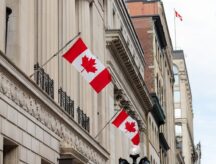Debunking four myths about life in Canada
There is a lot of misinformation online about what it’s like to live in Canada.
As one of the world’s most popular immigration destinations, many people create a picture of life in Canada that either focuses too intently on the positives of living here or only spotlights the negative aspects of life in this country.
To provide a more balanced picture of life in Canada, this article will address some of the internet’s most common misconceptions about Canada.
Misconception 1: Immediate employment
Newcomers can immediately get a job in their industry of choice upon arriving in Canada.
Discover if You Are Eligible for Canadian Immigration
Fact
Finding a job in Canada is often a time-consuming process for newcomers.
Only some job seekers are fortunate enough to find employment quickly, and the job search can be a lengthy process for newcomers and established residents alike.
Getting a job interview is one of the first challenges. It can take weeks or months to be contacted by an employer. Then, when newcomers (and other Canadians) do eventually get a job interview, employers can take several months to hire for a position. This is because, as hundreds of people often apply for the same position, the interview process itself can be an extensive undertaking. In fact, TopResume.com, an online resume-writing resource featured on CNBC and the Huffington Post, suggests that the average job search in 2024 can generally take between five and six months.
A more newcomer-specific reason for a lengthy job search is what is commonly referred to as the newcomer skills mismatch. This is the term used to describe what happens when, although a newcomer has extensive experience in an occupation or industry in their country of origin, they struggle to get a job in their field after arriving in Canada. This means it may take newcomers longer than Canadians to find employment.
However, this situation is showing some signs of improvement. Recent Statistics Canada data shows that the number of immigrants working in jobs fitting their qualifications has increased by 4.4% between the 2016 and 2021 censuses.
Misconception 2: Climate
Canada is always cold.
Fact
Your experience with Canadian weather will depend on where you live. Canada’s climate, displayed in degrees Celsius (°C), varies significantly, as some areas of the country have harsher and consistently cold weather while some regions benefit from milder weather patterns.
One example of this can be found when comparing 1991 to 2020 Canadian Climate Normals data published by Environment Canada.
According to this dataset, in Eureka, Nunavut ( a research base located in Canada's far north) the highest daily average temperature in any given month was 6.8°C (July). In addition, the daily average temperature across the entire year was –18.1°C.
Eureka is considered one of Canada’s coldest locations. In fact, it charted a negative daily average temperature (in Celsius) for nine of the 12 months in a year.
On the other hand, Victoria, British Columbia (B.C.) is considered one of Canada’s consistently warm cities. According to the same dataset, Victoria had a monthly high of 17.2°C (daily average temperature) in July and a year-long daily average temperature of nearly 10.3°C. Victoria also did not have any single month with a negative daily average temperature.
Still, the weather in Canada changes throughout the year.
Once again using B.C. as an example, the city of Lytton recorded the hottest day of last year at 42.2°C on August 15, 2023. Meanwhile, a city just slightly over two hours away from Lytton, Abbotsford, recorded a daytime low temperature of “between -11°C and -16°C” on January 12, 2024.
Even within the same month and season, the highs and lows of Canadian temperatures can vary significantly.
For example, in Saskatchewan, the city of Regina has seen both extremely hot and extremely cold temperatures in October. According the Environment Canada data, Regina recorded an “extreme maximum” temperature of 32.0°C one year, but also an “extreme minimum” of -26.1°C in 2011. This temperature does not factor in windchill, which can make it feel even colder in winter.
Misconception 3: High cost of living
Living in Canada is uniformly expensive.
Fact
Although the cost of living involves a variety of factors, a common measure of living costs for Canadian newcomers is the average rent in different cities. Costs are typically higher in major cities such as Vancouver and Toronto. In June 2024, these were the average costs for renting a two-bedroom unit across Canada according to Rentals.ca.
Note: Scrolling over each bar in the chart will reveal the average cost (in Canadian dollars) of a two-bedroom unit in the city.
[visualizer id="44953"]
Misconception 4: Immediate access to free healthcare
Newcomers to Canada will get immediate access to Canada’s universal healthcare system.
Fact
In Canada, a health card allows all holders to access public health insurance in their province or territory.
Healthcare eligibility generally depends on a newcomer’s status in Canada. In other words, health cards are usually reserved for citizens and permanent residents of Canada, although some provinces allow temporary residents (international students, temporary foreign workers etc.) to obtain public health care coverage.
The following webpages provide more information on healthcare coverage eligibility in each Canadian province and territory:
- Alberta
- British Columbia
- Ontario
- Manitoba
- Quebec
- Newfoundland and Labrador
- Prince Edward Island
- Nova Scotia
- New Brunswick
- Saskatchewan
- Nunavut
- Northwest Territories
- Yukon
In some provinces, new health card applicants are also not immediately eligible for public healthcare coverage. This is because some provinces and territories require newcomers to wait up to three months for their benefits to begin. This can also apply for Canadian's who move from one province to another.
Note: The only provinces without a waiting period are Ontario and Newfoundland and Labrador.
- Do you need Canadian immigration assistance? Contact the Contact Cohen Immigration Law firm by completing our form
- Send us your feedback or your non-legal assistance questions by emailing us at media@canadavisa.com







